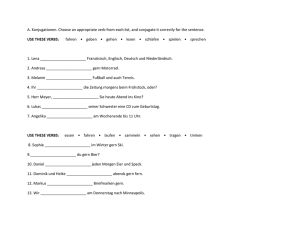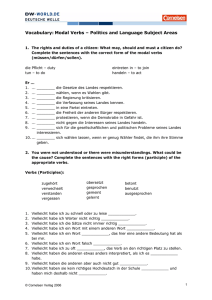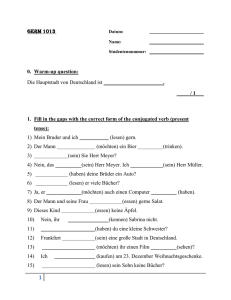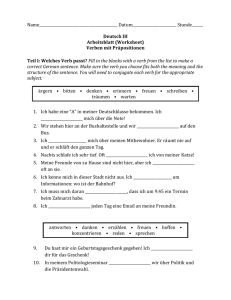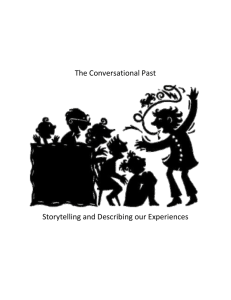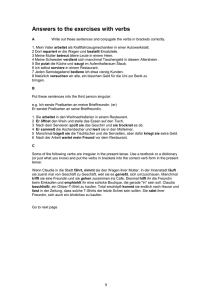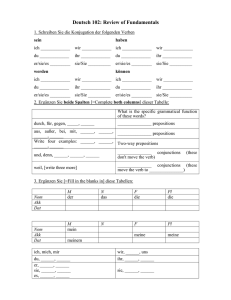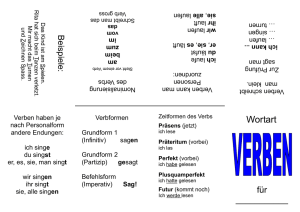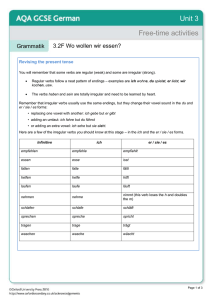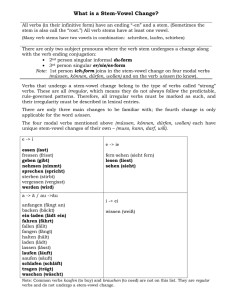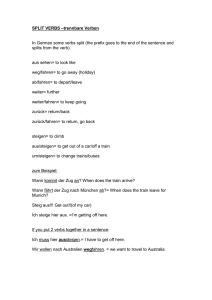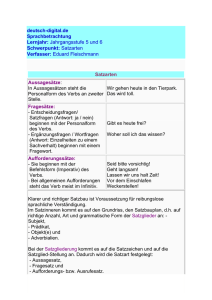1. antworten
Werbung
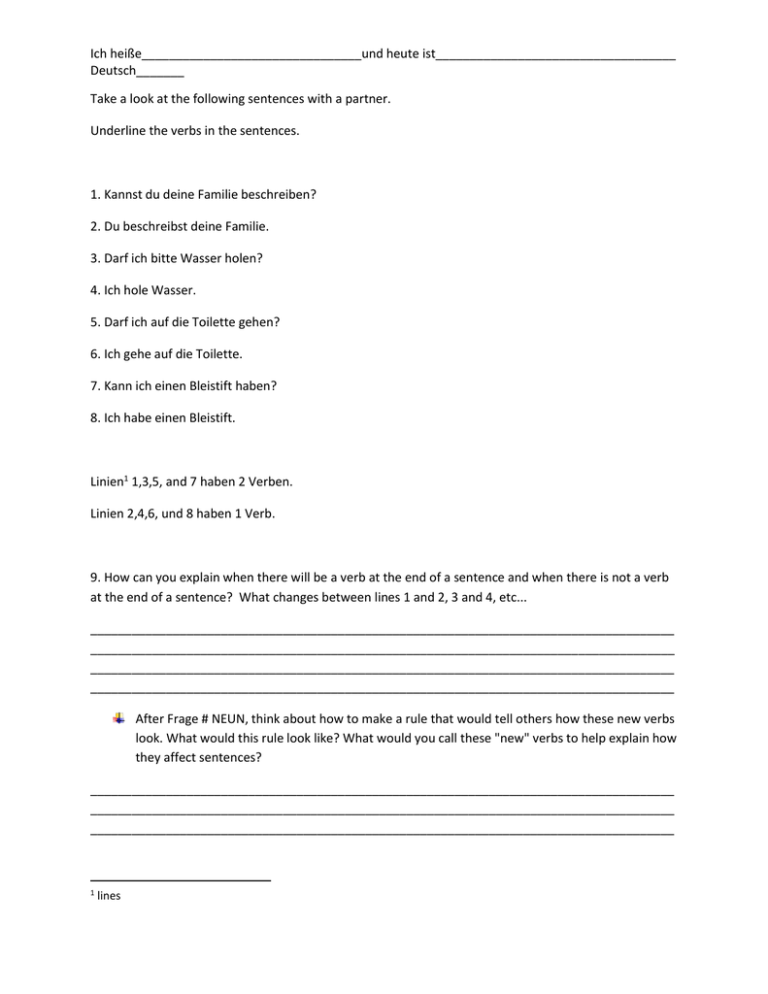
Ich heiße________________________________und heute ist___________________________________ Deutsch_______ Take a look at the following sentences with a partner. Underline the verbs in the sentences. 1. Kannst du deine Familie beschreiben? 2. Du beschreibst deine Familie. 3. Darf ich bitte Wasser holen? 4. Ich hole Wasser. 5. Darf ich auf die Toilette gehen? 6. Ich gehe auf die Toilette. 7. Kann ich einen Bleistift haben? 8. Ich habe einen Bleistift. Linien1 1,3,5, and 7 haben 2 Verben. Linien 2,4,6, und 8 haben 1 Verb. 9. How can you explain when there will be a verb at the end of a sentence and when there is not a verb at the end of a sentence? What changes between lines 1 and 2, 3 and 4, etc... _____________________________________________________________________________________ _____________________________________________________________________________________ _____________________________________________________________________________________ _____________________________________________________________________________________ After Frage # NEUN, think about how to make a rule that would tell others how these new verbs look. What would this rule look like? What would you call these "new" verbs to help explain how they affect sentences? _____________________________________________________________________________________ _____________________________________________________________________________________ _____________________________________________________________________________________ 1 lines Ich heiße________________________________und heute ist___________________________________ Deutsch_______ 10. Rearrange the words in the box to create the question "Can I have candy?" Süßigkeiten Kann haben ich ____________________________________________________________________________________ 11. Now, using the same words, write the statement "I can have candy!".______________________________________________________________________________ 12. Do you remember our basic verbs? When combined with these new and curios verb können (kann) and dürfen (darf), we can communicate many many many many things. VIELE DINGE! 1. antworten to answer 2. arbeiten to work 3. bezahlen to pay 4. bedeuten to mean, signify 5. beginnen to start 6. bekommen to get 7. besuchen to visit 8. bleiben to stay 9. bringen to bring 10. danken to thank 11. denken to think 12. essen to eat 13. fliegen to fly 14. fragen to ask 15. gehen to go 16. hören to listen 17. kommen to come 18. lesen* to read 19. lernen to study/learn 20. machen to make/to do 21. probieren to try 22. schmecken to taste 23. schreiben to write 24. sehen* to see 25. suchen to look/search for 26. studieren to study (as a college major) 27. verstehen to understand 28. warten to wait 29. wohnen to live Try making three more sentences with dürfen or können, with at least one question. 1. 2. 3. Ich heiße________________________________und heute ist___________________________________ Deutsch_______ Begin studying these verbs again. We will be quizzing with our new verbs and this list of 29 (since we have already covered them) on Thursday. Hausaufgabe, use the new verbs to translate the following sentences into German: 13. I can not understand. ___________________________________________________________________________________ 14. I can not understand my dog. ___________________________________________________________________________________ 15. May I please start? ___________________________________________________________________________________ 16. May I listen? ___________________________________________________________________________________ 17. Can you please pay? I have no money. ___________________________________________________________________________________ 18. (create your own crazy sentence) ___________________________________________________________________________________
